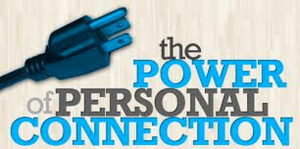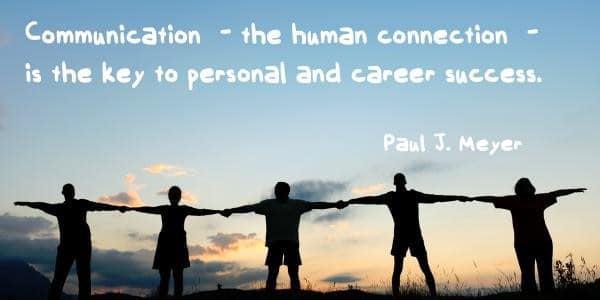Leveraging personal connections is probably the single-most effective approach in landing a job . Roughly half of all employees say that they found their job through a friend, family member, or other type of social network contact. Although all connections are not created equal. In a job search, talking to people and networking is clearly important, but who are the best people to talk to?

The importance of social networks for getting jobs
Studies show that the “strength” of the social tie between job seekers and the people giving them employment leads, and found that of those who found jobs through contacts, only 17% saw their contact “often,” while 56% saw the contact “occasionally,” and 28% saw him “rarely.” The people in your life who you don’t know too well are the ones who often matter the most when it comes time to find a job.

Other studies since have backed up the importance of “weak ties.” The general consensus is that people you don’t know well tend to belong to groups that aren’t your own. They therefore have access to information about jobs that you wouldn’t otherwise come across. The people who you’re closest to, your “strong ties,” usually move in the same social circles as you do. Most jobs they know of, you could have found out about from someone else. As painful as it can be to talk to people you don’t know too well about the fact that you’re looking for work, those could very easily prove to be the most important conversations.
What else can job seekers learn from social networks and personal connections?
- Weak ties are important, but don’t ignore the strong ones. weak ties can play the largest role for people who already had jobs—those switching positions rather than looking to leave unemployment. Among the unemployed, strong ties actually matter more. In moments of pressure, it seems that strong ties might very well be the ones that come through. So while it’s important to utilize your acquaintances in your job search, that doesn’t mean you should neglect the people closest to you.
- Willing. Your connections have to be willing to go to bat for you, since the jobs people know about are often at the place where they work. Letting folks in your social network know that you’re looking for work is the first step, but you should also work to sell them on the idea that you’d make a great employee. Explaining your professional life and selling yourself is very important.
- Getting a job and getting a great job are two different things. we know that social connections are important for getting jobs. But do they also help people get jobs that are better than the ones they’d find in other ways? There is a lot of back and forth with this… Some suggest that having high-status connections helps land more prestigious jobs, but other argue that while people with high-status networks do tend to get higher-paying and more prestigious positions, the first isn’t necessarily causing the second. Instead, people simply have contacts similar to themselves. Therefore, networks are important for getting jobs, but if your goal is moving up the career ladder, don’t rely on the people you know as the only factor.
- During a job search, social connections matter in different ways. The reason weak ties often lead to job tips is because of how information travels through social networks. But a job search usually involves a lot more than just looking for information about open jobs. It might also involve rewriting your resume, researching industries, understanding your personal career goals, and keeping a focused mindset as this process tends to take some time. Weak ties may be the key to getting your next job, but the strong ties are the people who will help push you and keep you motivated until the end!








